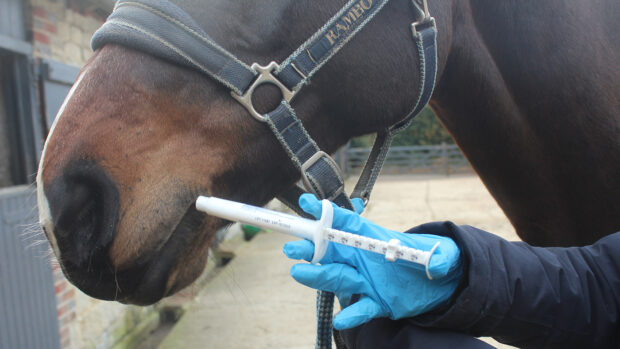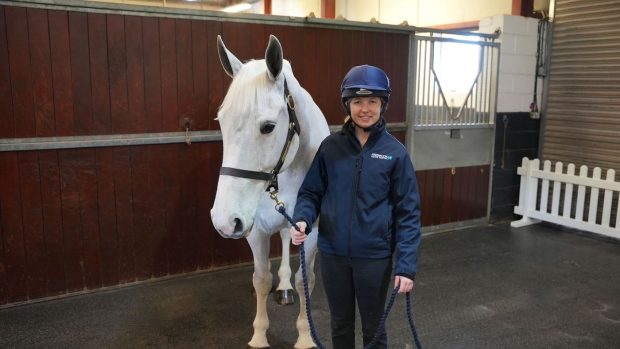Owners could have a “new tool” in the battle against encysted redworm, thanks to the Moredun Research Institute.
Scientists currently working on a “novel” diagnostic blood test for assessing small strongyle larvae burdens – which cannot be detected at present – are now in collaboration with Austin Davis Biologics to develop the test further.
The initial process detects antibodies in infected horses and it is hoped this will also be possible using saliva samples.
A spokesman for the project said this would “simplify the collection process for horse owners, allowing them to take samples directly from their horses for analysis”.
Group leader Professor Jacqui Matthews, who is developing the diagnostic blood test at Moredun, added: “We are delighted to collaborate with Austin Davis Biologics to further develop this test; the company has significant experience in the development of saliva-based tests for the equine market.”
Small strongyles are a group of parasites commonly found in the guts of grazing horses. In general, the higher the worm burden, the higher the risk of clinical disease in the horse.
The larval stage of the worms plays a significant role in the “disease syndromes” but there is no direct method of detecting the immature stages, as the larvae burrow into the gut wall where they lie dormant, which prevents specific diagnosis and treatment.
They can then mature and emerge en masse in spring, causing diarrhoea and colic, with a mortality rate of up to 50%.
Related articles:
- Worms – hidden dangers and suggested control
- Campaign warning about dangers of encysted small redworm
- Horse owners warned following another myopathy death
In the early stages of the project, the scientists are working with equine vets to collect samples of blood and saliva, which the aim of comparing saliva test results with validated results from the blood.
Dr Corrine Austin of Austin Davis Biologics said: “We are very pleased to be working with Moredun on this exciting new project. A saliva test for encysted cyathostomins will provide horse owners, equine veterinarians and animal medicines advisors with a new tool to target the treatment of cyathostomin infections in horses.”





